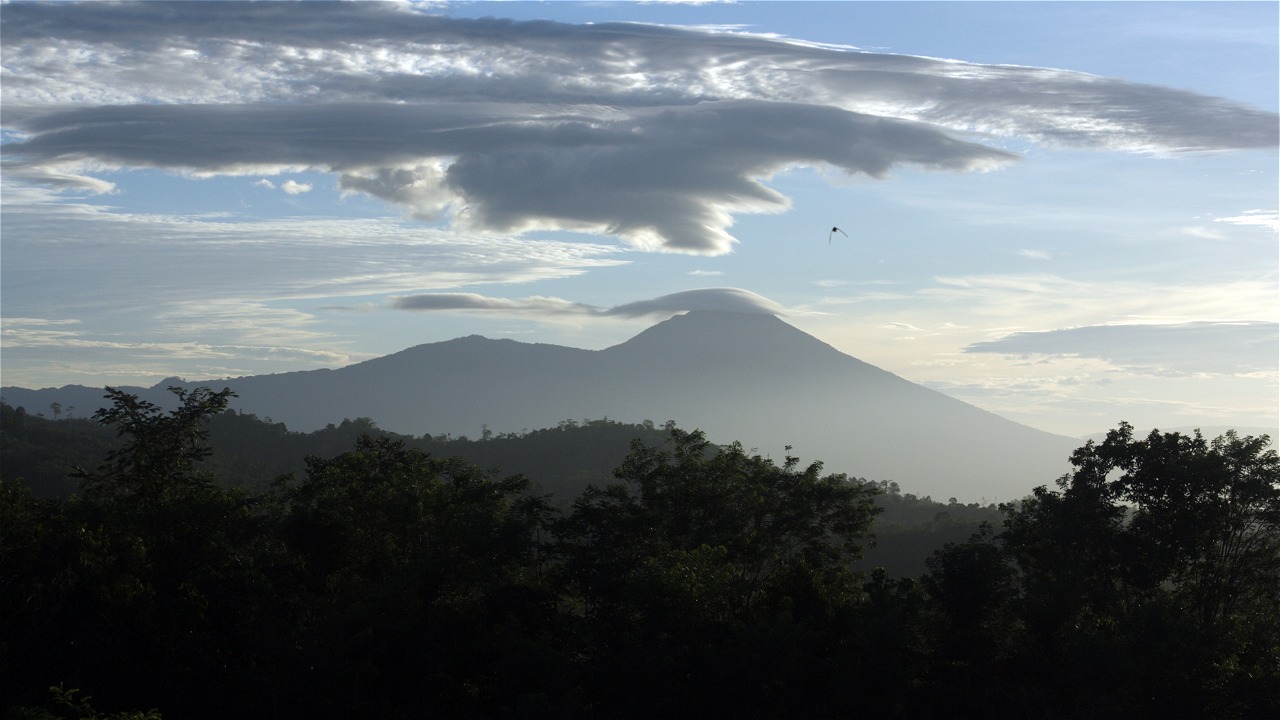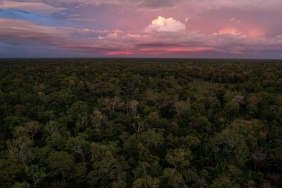RESTORATION OF ECOSYSTEM FUNCTIONS WITHIN THE ULUBELU RESORT AREA TNBBS
By: Hijrah Nasir
Mr. Supar tells the story of when he first planted coffee land inside TNBBS 22 years ago. He explained that he bought the land from someone else and did not know that the area was part of TNBBS. Pak Supar is just one of thousands of people who have been encroaching on the TNBBS area for decades. Massive land conversion is the biggest threat to the conservation of TNBBS. The accelerated destruction of the TNBBS area occurred in the period 1998 - 2004 as a result of local and national political changes and the increasing global market for many commodities, such as coffee, chocolate and other export crops. Analysis of aerial photographs by WWF and WCS (imagery from the period 1999-2004) shows that approximately 89,224 ha of natural forest in TNBBS has been lost or about 28% of the total area of TNBBS. An area of 55,402 ha of this total converted land (17% of the total area of TNBBS) is classified as active plantations, which are dominated by coffee plants and around 6,828 ha or 12% of the active plantation area, are new coffee plantations. A further 33,882 ha (11% of the TNBBS area) has become scrub due to encroachers.
However, based on BBTNBBS data in 2010, the area of TNBBS that was actively encroached was 61,786 ha with 16,214 households. This shows an increase in the rate of encroachment every year. This increase in encroachment is due to the socio-economic conditions of the community around TNBBS. Data from the TNBBS Center shows that there are 127 villages (2007) directly adjacent to TNBBS with the main livelihood being farmers.
One of the areas with massive forest encroachment for coffee plantations is the Ulubelu area. Therefore, since 2012, the TNI in collaboration with the TNBBS Hall and the community held a tree planting program in the Ulubelu area. Since then, people who grow coffee in the TNBBS area have started planting and caring for hardwood trees such as Cempaka, Mentru, Pulai, and Medang on the sidelines of their coffee plantations. However, due to a lack of information and knowledge about sustainable agricultural cultivation techniques, there are still farmers who remove the trees because they think the plants will interfere with coffee growth.
WWF and TNBBS officers regularly conduct security patrols within the Ulubelu area. A persuasive approach is also built with the community to provide an understanding of the rules and the importance of restoring the ecosystem within the TNBBS area. Since 2016, the Ulubelu resort and WWF have conducted socialization by visiting hut owners in the TNBBS area, providing socialization to the head of the hamlet or head of the local RT, and providing circular letters to local community leaders. It is hoped that the appeal to tear down the huts they built in the area can be implemented with full awareness from the community.
Six huts in Talang RCTI, Ulubelu Resort were built between 1986 - 1990. They came from other areas outside the area. Based on information from the Head of Ulubelu Resort, Balai Besar TNBBS, from May to July 2017, a total of 33 huts were successfully demolished by the community managing coffee plantations within the Ulubelu resort area. In Talang Hadi as many as 12 huts, Talang RCTI as many as 6 huts, and Sukomoro as many as 15 huts.
Meanwhile, according to data collected by Ulubelu Resort officers, the TNBBS Center, out of 10,000 hectares of TNBBS area in Ulubelu there are at least 1,117 family heads of hut owners and tenant farmers consisting of 8 hamlets namely, Pagar Bukit, Sukomoro, Payung Makmur, Way Haru, Marga Jaya, Palang Merah, Talang Lobang, and Camp Plastik in Bandar Agung Village, Bandar Negeri Suoh, West Lampung.
"We are still waiting for the next instruction from the TNBBS Center. So far, the security of the area has been actively carried out. We must ensure that there is no new land clearing in the TNBBS area. Massive land clearing occurred until 1998-1999 in Bandar Agung village. We from Balai TNBBS are asking for support from partners to organize joint patrols to bring down all encroachers within the Ulubelu resort area." Said Mr. Sukirno, Head of Ulubelu Resort, Balai TNBBS.
WWF Indonesia will then conduct the NEWTrees program in this area by involving the surrounding community. The goal of this program is to restore ecosystem functions within the area. For the first phase, farmers will plant 4,000 seedlings on 10 hectares of land. Crops such as jengkol, pete, durian, areca nut and nutmeg were chosen to provide additional income for the community. People living adjacent to the TNBBS are also required to plant sugar palms and areca nuts and bamboo for those living near the river. It is hoped that this community involvement will increase their awareness of the importance of the national park area. WWF believes that conservation efforts can only be realized through community participation and awareness.





